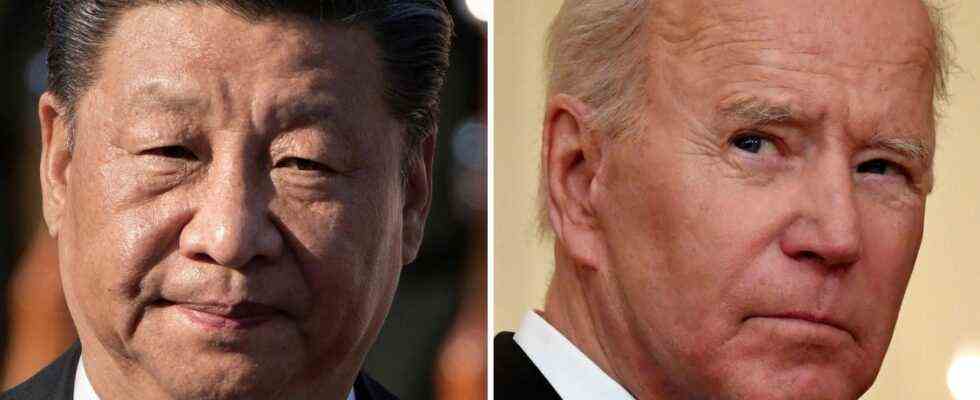For the first time in seven months, there has been direct communication between US President Joe Biden and China’s head of state and party Xi Jinping. In a 90-minute phone call, both heads of state warned that the tensions between the two countries could end in a confrontation. The phone call came about at Biden’s instigation.
“The two leaders discussed the responsibility of both countries to ensure that the competition does not turn into a conflict,” said the White House on Friday. A “confrontation between China and the US would be a catastrophe for both countries and the world,” said Xi Jinping, according to Chinese state media. As the White House further reported, both presidents “discussed areas where our interests collide and areas where our interests, values and perspectives diverge.”
Biden and Xi had agreed “to address both catalogs of problems openly and directly”. The US president made it clear that the US was trying to “deal responsibly with competition between the US and the People’s Republic of China”. Biden underscored the US interest in peace, stability and prosperity in the Indo-Pacific region and the rest of the world. While the US is trying to separate aspects such as climate change from more controversial issues such as trade relations or dealing with human rights and the democracy movement in Hong Kong, Beijing wants to unite the issues.
It was only the second telephone conversation between the two presidents since Biden took office in January. Since the time of his predecessor Donald Trump, the two largest economies have been fighting a trade war with mutual punitive tariffs. There are also differences over the USA’s criticism of a lack of respect for human rights in China, the way it deals with the democratic opposition in Hong Kong and the Muslim Uyghurs in Xinjiang. There is also dispute over China’s territorial claims in the South China Sea and its threats against democratic Taiwan.
Biden’s goal was to find out whether relations between the two countries could be improved in a personal conversation, as the US side said. The tone between the two heads of state was familiar and open. Biden used the opportunity to explain the intentions behind US foreign policy, which Beijing misunderstood as a means of suppressing China. The White House is still reviewing the general direction of China policy, as well as the tariffs and trade policies that were put in place under the previous administration of President Trump.
The G20 summit in Rome could be an opportunity for a face-to-face meeting
Xi Jinping blamed the US for dropping the relationship to its lowest level since diplomatic relations began in 1979. The China policy, which the US has been pursuing for some time, has “created serious difficulties for relations”. Whether China and the US dealt well with their relationship is important for the future of the world. “It is the question of the century that both countries have to answer,” said Xi Jinping. The international community is facing major problems. China and the US should “see the big picture” and look ahead to get their relations back on track, China’s president said. On the basis of respect and the appropriate handling of differences, the dialogue could be continued and cooperation in climate protection, fighting pandemics, economic recovery and regional and international issues advanced.
Relations between China and the United States are the most important in the world, said Xi Jinping, according to the state media. The summit of the group of major economic nations (G20) on October 30th and 31st under the Italian presidency in Rome offers the two presidents an opportunity to meet in person. However, Beijing has not yet announced whether Xi Jinping will travel to Italy under pandemic conditions or whether it would prefer to only attend the deliberations via video for security reasons. For fear of the virus being introduced and because of its strict zero-covid policy, no state guests have been received in Beijing for more than a year.
There was also no agreement on how to proceed with direct communication between the two heads of state. From Beijing it was said that both sides had agreed that regular communication at the highest level was important for bilateral relations. The US did not want to commit to further talks.

